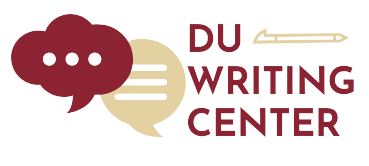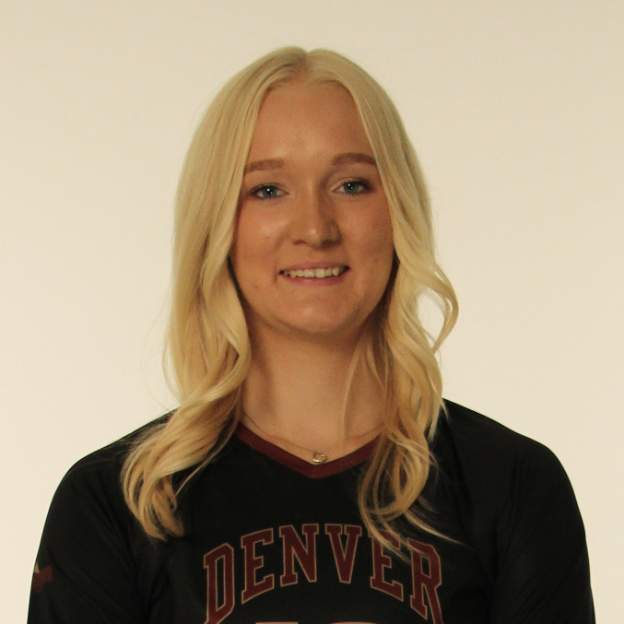by Kamila Kinyon
This Fall, we will be publishing a series of spotlight articles about multilingual students at DU. These articles are based on interviews that Kamila Kinyon conducted about students’ memories of becoming multilingual, their connection to their heritage language, and their experiences at DU. This project is funded by a 4D Infusion Grant awarded for 2022-23 to Juli Parrish and Kamila Kinyon. We welcome this opportunity to celebrate DU’s multilingual speakers and writers.
Merle Weidt grew up in Germany and moved to the U.S. five years ago as a student athlete working towards her undergraduate degree. She is now studying at DU’s Korbel School in the international security master’s program. Fluent in German, English, and French, Merle has also taken college classes in Russian and Spanish. She thus successfully negotiates multiple languages on a regular basis.
German is Merle’s heritage language and the language that she uses to communicate with family. She is familiar with multiple dialects of German. Her parents come from north Germany, but she grew up in the South, so her friends at school spoke differently from her parents: “When I would be at my friend’s place in one of the villages, I think his grandma talked to me and I had difficulties understanding it actually.” Merle notes that not only the pronunciation but even the words used would be different. Encountering different dialects increased Merle’s appreciation for linguistic differences.
Even though Merle took thirteen years of French from elementary school to high school and only started learning English in fifth grade, she notes that she is now more comfortable speaking English than French. Nevertheless, learning academic jargon while studying in the U.S. was initially a learning process: “In the health and public policy field…it was just very specific words that they used that weren’t…basic English, but more advanced, higher academic English.”
Having now lived in the U.S. for five years, Merle is well versed in various styles and registers of English. In fact, she often intuitively thinks in English rather than German: “Really, the only thing that I still do in German is counting. It’s just ingrained…But when I write, I definitely think in English.”
Being an international student athlete involves intensive work, but Merle found that it expanded her horizons and her cultural awareness: “The academics and sports load on top of that…made me aware of cultural differences and how to adjust to new environments on a high stress level. And I think just that the added component of being international really made me… aware of different cultures, different values…and how you have to understand and respect that too in order to, let’s say, work well together in a team setting… we always had international students in all my teams.” While Merle is now retired from the volleyball team and focuses on her academic studies, she has many good memories of that time.
When returning to Germany, Merle has found herself using a hybrid form of German mixed with English: “When I go back, I start speaking Dinglish…Deutsch means German, so German-English.” Merle finds it easy to talk about ordinary things in German, but English comes more naturally when talking about her professional and academic endeavors: “As soon as it comes to what I’m doing in my field, what I’m studying, most of the times I just switch into English… because I barely ever read about what I’m doing in German… when I want to talk about it, I have to translate it word for word.” Merle’s experience of hybrid language use is typical of many multilingual speakers and writers.
Overall, Merle feels that being multilingual offers many opportunities: “Being multilingual is going to be a big advantage. Especially studying international security and… wanting to work on that international stage, it’s really useful to be fluent in English and French and German and then also having a little bit of a Russian background.” In addition, Merle values the cultural insight that multilingualism provides: “I’m very, very happy because… it’s also the cultural understanding that I gained from it…I have the feeling that knowing a language, it’s just the bridge that then opens the door to actually learn more about the culture.”

